Do You Need to Review Your Will?
Atlanta lawyers offer guidance about drafting wills, trusts and other documents to accurately and securely reflect your intentions.
Chana Shapiro is an educator, writer, editor and illustrator whose work has appeared in journals, newspapers and magazines. She is a regular contributor to the AJT.
In the biblical story about the patriarch Isaac’s two sons, the eldest Esau “sold” his property birthright to his younger brother Jacob in exchange for a pot of lentil stew. Later, Isaac mistakenly bestows his primary blessing on the younger son Jacob. Esau challenges his father, but Isaac can only give him a different blessing. No documents changed hands, yet these ancient rituals were binding, and they resulted in serious consequences further described in the Torah. In a world without lawyers, one’s word was binding.
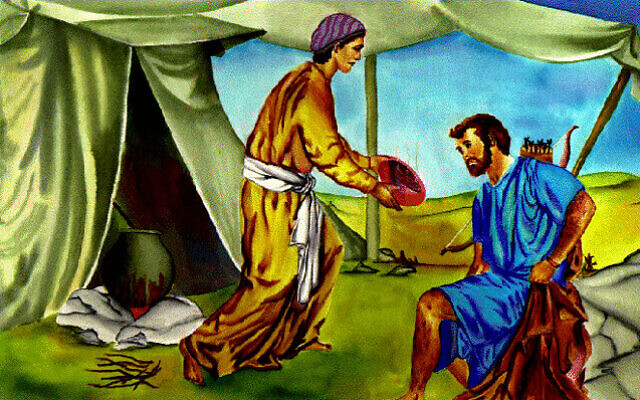
Attorneys Ira Leff, Barbara Katz and Ivan Millender agree about the inherent dangers of wills that have not been drafted by qualified lawyers. If challenged, spoken and handwritten promises made by persons of sound mind will not hold up.
“People writing a will should not rely on a form from the internet or copied from another will,” recommends Millender, an estate attorney. “Use a lawyer who is proficient in writing wills, preferably one who knows the family structure, relationship issues and the assets involved. This includes insurance policies and future interests.”
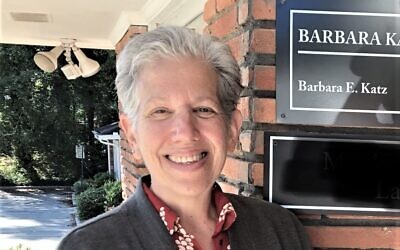
Katz, who often deals with wills, trusts and estate planning, says a will is crucial if a person owns property or has children. “The main points in a will are who will receive the estate (the beneficiaries) and who will administer the estate (the executor). It is necessary to name a successor executor, in case the primary executor is unable to serve.
When making inheritance decisions, Katz suggests the option of a living trust, which can offer greater control than a will over who will benefit from your possessions. A trust is a legal arrangement in which your assets can be used by you during your life. You are your own trustee, and you can amend your trust as long as you’re alive. In your trust document, you name your successor trustee, who is responsible for distributing your assets to your beneficiaries after you die.
“A trust eliminates probate, which is long and expensive. In addition to incurring attorney fees, the probate process can take an average of 18 months, delaying inheritance distribution.”

Elder law attorney Leff assists families with incapacity planning in which the person making the will may be unable to monitor it personally. Leff oversees assigning powers of attorney and creating an Advance Health Care Directive, as well as naming primary and successor executors. He stresses being meticulous with the complete names of each beneficiary, because when making specific gifts to people or organizations, names can change over time. Leff also advises his clients to make a plan for the disposal of assets if the primary beneficiary (for example, a spouse) dies before you. There should be instructions of how to treat any prior gifts, loans and charitable bequests made while you are living.
Katz mentions that the Georgia state-mandated advance directive for health care can include organ donation, autopsy concerns, and the decision of cremation or burial. In the case of a desire to be buried in Israel, Katz suggests a statement in the directive: “I direct my heir to use funds from my estate to send my body to Israel for burial.” She clarifies, “This kind of declaration is a stated desire in one’s will, but it may not be followed. In the advance directive, it is binding; it is secured.”
Leff and Millender agree that a will should be reviewed at least every five years. In Georgia, you can write a will once you reach the age of 14. “While it is not necessary for most people to prepare a will that early,” Leff said, “it is critical to create a will once you have children.”
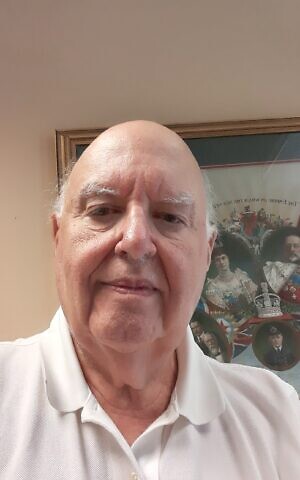
Katz explained, “There are two reasons for a will review. First, you may want to modify something in your will. For example, you may want to change the person who inherits your menorah, or both of the people appointed as executor have died and you need someone new. Second, a change is necessary if the person making the will has gotten married or had a child after signing their first will and the will did not mention this possibility.”
The attorneys agree that there is no such thing as an ironclad or unbreakable will. “Anyone can challenge a will,” Katz said. “They may not be successful, but they will have embroiled the estate in needless litigation, perhaps for years. Eventually, there may be an adjustment or compromise.”
Leff added, “The typical bases for contesting a will are undue influence – pressure can take the form of deception, harassment, threats, or isolation – incompetency or fraud. Many wills contain an in terrorem clause, which discourages challenges. For example, if a mother leaves 40 percent of her estate to each of two daughters and 20 percent to her son, he has an incentive to challenge the will and might say that his mother was suffering from dementia when she signed the document. The in terrorem clause would say that the son loses his 20 percent share if he challenges the will and then loses the challenge, leaving him with nothing.”
The three attorneys mention situations the will’s executor must handle, such as when a substantial sum of money is left to a young person who may not have the maturity to handle the legacy wisely. Leff suggested, “It may not make sense to leave assets to a disabled spouse, since doing so will affect his or her ability to qualify for Medicaid assistance.”
Millender addressed situations in a will that cover minors. These include: who is the guardian of minors; who is to be conservator of assets belonging to a minor; at what age should children receive inheritances; how should money be spent for children’s care and welfare; and lifetime gifts to children. In the case of a trust, he stresses appointing a reliable trustee.

When it comes to after-death decisions, such as where to bury the deceased, Millender said, “None of our health care decisions or burial/cremation decisions is affected by our will. Our specified health care agent in the advance health care directive, usually our next of kin, has complete discretion over the disposition of the bodily remains. Funeral wishes should be written out and arranged in the advance health care directive, which goes into effect immediately upon death. The will is most often opened and read after the funeral. With Jews, this can be more than a week after burial, following shivah.”
Leff offered, “If you instruct your health care agent to bury you in Israel, and he or she refuses to do so, other family members can use the advance health care directive and go to court to have the agent removed. Before finalizing your directive, clarify your wishes with your health care agent, and name a reliable successor. If you are unsure that the agents will honor your wishes, remove the decision from them and clearly state your wishes in the directive itself.”
Millender added, “A will should be kept in a safe deposit box. Someone, perhaps the executor, should have a key so that the box can be opened without going to court to get an order. This can avoid family trouble about the terms of the will or the unfortunate destruction of the will.”
While we cannot rule from the grave, one way to affect future generations is by creating an ethical will. For thousands of years Jews have recorded their advice, expectations and hopes by imparting their values in writing.
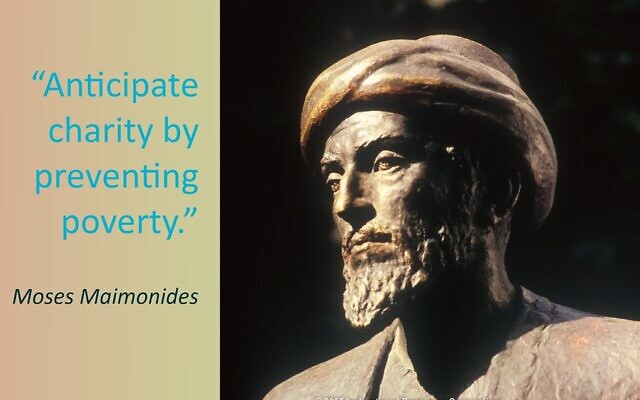
In the 1926 volume “Hebrew Ethical Wills,” compiler Israel Abrams includes heartfelt letters written by Jewish sages to their children. An example of such a letter is from the late-12th century scholar and physician Moses Maimonides. His “Gate of Instruction” begins with guidance about fear of G-d and gratitude for life. It continues with moral instruction, including these passages: “Reject death and evil; choose life and good, for free choice is given to you. The perfection of the body, good health, is an antecedent to the perfection of the soul. Conduct yourselves with gravity and decency. Be in the company of the great and learned, but behave modestly in their presence. Stand by your words, let not a legal contract be more binding than your verbal promise. Have pity for the poor and sorrow-stricken. Eat to live and ban excess. Honor your wives.”
Attorney Leff wrote an ethical will many years ago when his children were small. “In it I explained that living an observant lifestyle was very important to me, and it was my hope that the kids would be educated at Orthodox schools and encouraged to live a committed life. I have never written one for a client because it is a very personal document, not a legal document.” Leff, Katz and Millender all consider an ethical will to be an enduring link to future generations, beyond a physical legacy.
- Senior Living
- Community
- Chana Shapiro
- Ivan Millender
- Barbara Katz
- Ira Leff
- Lawyer
- Attorney
- Advance Health Care Directive
- safe deposit box
- executor
- ethical will
- health care agent
- wills
- Dementia
- shivah
- Revocable Living Trust
- minors
- guardian
- in terrorem clause
- Moses Maimonides
- “Gate of Instruction
- ” Israel Abrams
- “Hebrew Ethical Wills”



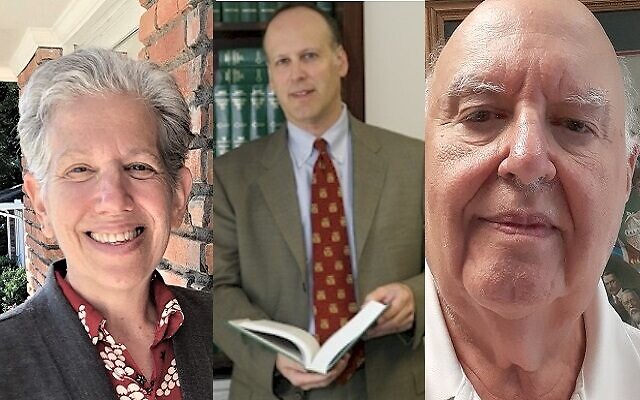
comments